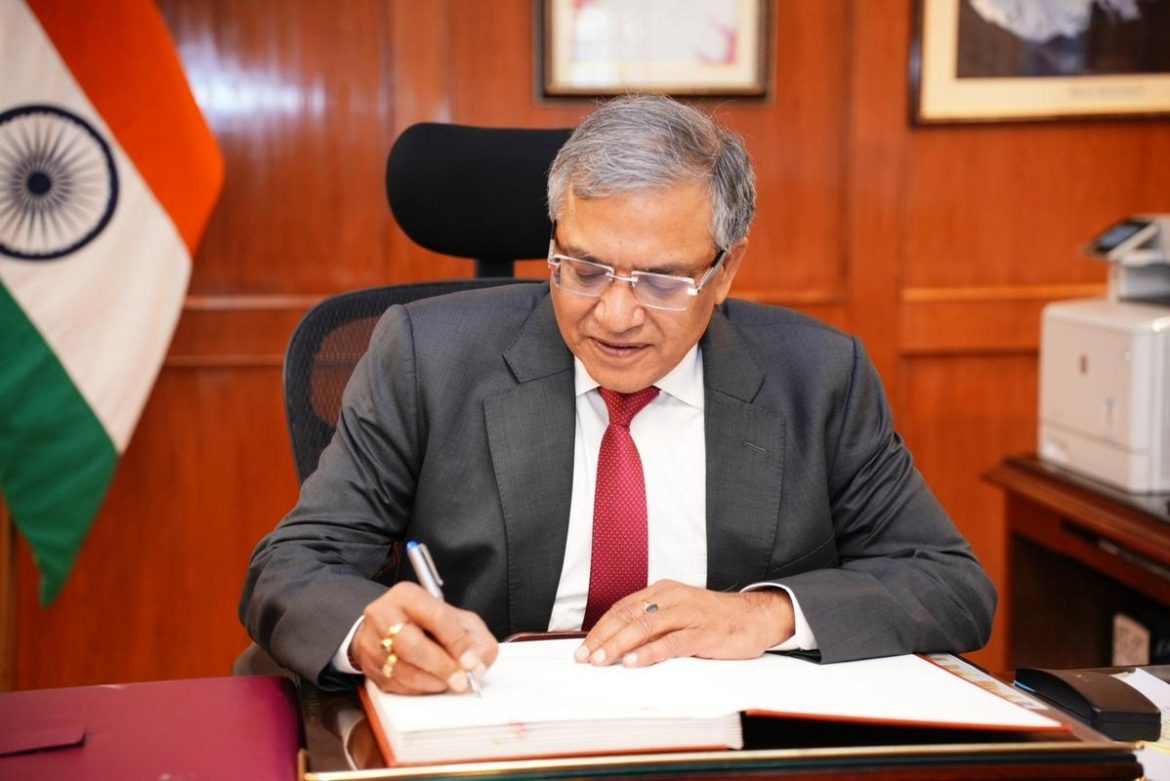Rahul Gandhi Takes Aim at Chief Election Commissioner
Congress leader Rahul Gandhi made waves over the weekend with a fiery statement taking direct aim at Chief Election Commissioner Gyanesh Kumar. Accusing the top election official of having a bias, Gandhi claimed that Kumar was “protecting vote chors” — a sharp rebuke likely to intensify political tensions as India approaches key electoral deadlines.
Is the Election Commission truly impartial? That’s the question many are asking after Gandhi’s remarks lit up political circles and social media alike. Describing Kumar as backing those who are “working to finish Indian democracy,” Gandhi’s charge challenges the perceived neutrality of one of India’s most critical institutions during one of the busiest election seasons in years.
Background: The Rising Row Over Electoral Integrity
The Indian National Congress has, for months, voiced concerns about the structure and fairness of the election process. From Electronic Voting Machines (EVMs) to voter roll discrepancies, the opposition has routinely questioned the system’s reliability. Gandhi’s comments follow a series of statements from various Congress leaders, many of whom believe the playing field has been unevenly tilted in favor of the ruling alliance.
This time though, the criticism is more targeted. “Gyanesh Kumar is supporting those destroying Indian democracy. He isn’t an unbiased constitutional officer anymore,” Gandhi said while speaking to reporters at a campaign stop.
What Exactly Did Rahul Gandhi Say?
Speaking to journalists on Saturday, Rahul Gandhi didn’t hold back:
“The Chief Election Commissioner is no longer neutral. Gyanesh Kumar is protecting vote chors, those who loot votes. He is failing India and its Constitution.”
He went on to argue that the Commission’s silence and inaction in the face of growing allegations—ranging from vote rigging fears to voter suppression—suggest complicity or, at best, negligence. “This isn’t a small matter. The integrity of elections is all we’ve got. If that’s compromised, what’s left of a democracy?”
Timeline of Events
- Early April: Opposition leaders flagged irregularities in several voter lists.
- Mid-April: Reports emerged alleging EVM malfunctions in some booths during state elections.
- Last week: Congress filed a formal complaint to the Election Commission naming specific officials for dereliction of duty.
- Saturday, 27 April: Rahul Gandhi launched a direct attack on Gyanesh Kumar, capturing national attention.
Official Statements: Silent or Strategic?
So far, the Election Commission has not issued any direct response to Gandhi’s comments, at least not publicly. A senior source from the Commission, on the condition of anonymity, was quoted saying:
“The Commission works within its constitutional mandate. Everyone is free to make political statements, but that does not influence the way we carry out our duties.”
No public comment yet from Gyanesh Kumar himself. That silence has been interpreted by some as dignified restraint, and by others as an admission of weakness. It depends on who you ask.
Community Response: Heated and Divided
Gandhi’s comments have triggered a noisy debate across political forums and social platforms. This made people curious—why such a direct accusation, and why now?
Some supporters are praising Gandhi for “speaking truth to power,” while others accuse him of undermining public confidence in democratic institutions. Here’s a glimpse of the chatter:
- “This needed to be said. If the watchdog is sleeping, someone has to bark,” tweeted a Congress loyalist.
- “Rahul is just making excuses for losing elections again,” said a BJP supporter on Facebook.
- “Couldn’t he file a formal complaint instead of throwing shade in a press meet?” wondered one independent analyst on LinkedIn.
Looking at the Bigger Picture
In a year thick with elections at both state and national levels, questions about credibility are bound to resonate deeper than usual. Trust in democratic mechanics is fragile—even more so in a country the size and complexity of India.
Gandhi’s choice to target Kumar directly reflects the deepening fault lines between the ruling party and the opposition. It’s not just about policies or ideology anymore—core democratic processes are now part of partisan battles.
Different Perspectives
The BJP has strongly dismissed Gandhi’s claims, saying he is trying to shift blame in anticipation of electoral defeat. BJP spokesperson Kanchan Gupta called the Congress leader’s statement “irresponsible” and said:
“Rahul Gandhi is setting the stage for crying foul when the poll results go against him. It’s a pattern. He has lost credibility.”
Others see this episode as a new marker in the erosion of institutional respect. “When leaders pull down the referees, the match becomes chaos. We’ve started seeing that in many democracies recently, not just in India,” opined an international electoral observer based in Delhi.
What This Means Going Forward
India is staring at weeks—perhaps months—of careful vote tallying, heated campaigning, and tight races. The Election Commission will be watched more closely than ever. Any slip-up, perceived or real, could spark further accusations, outrage, or worse — active protests.
Whether Gandhi’s remarks prove to be politically strategic or simply expressive of genuine frustration remains to be seen. But one thing is clear: the integrity of elections is now front and center. And no one — not even the Chief Election Commissioner — is safe from scrutiny.

